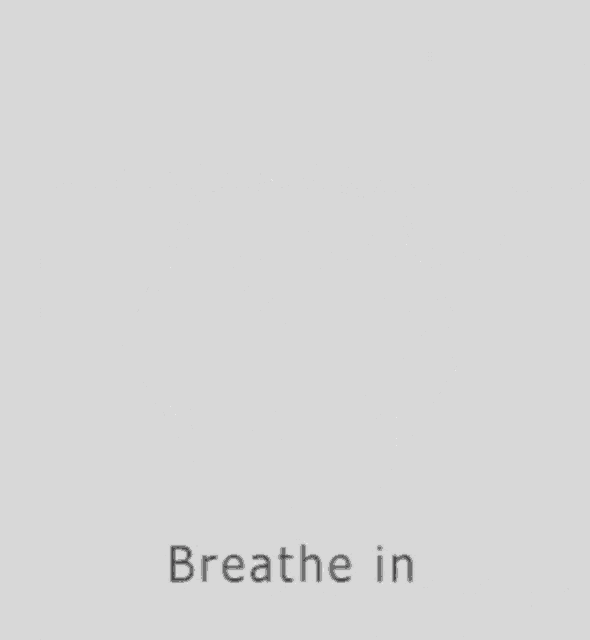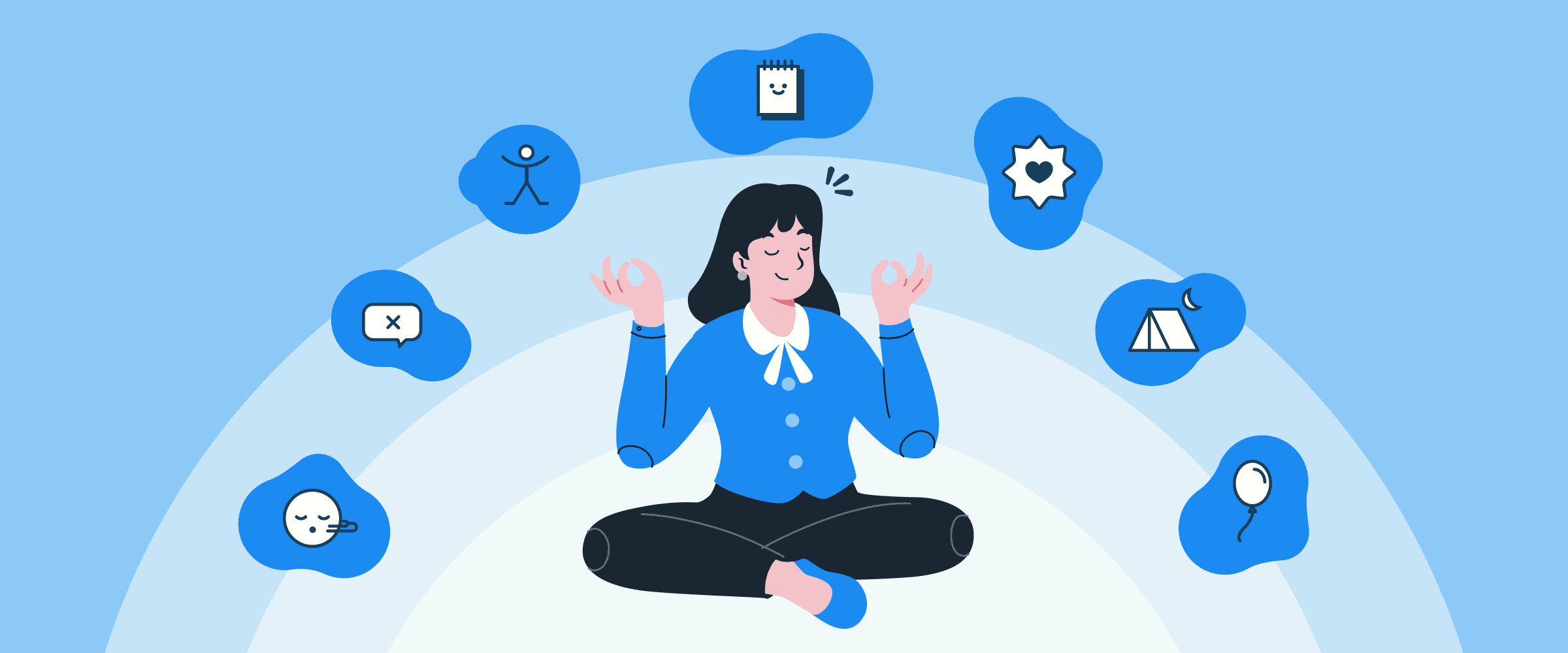When an employee has a problem at work, they can reach out to their HR teams for help. But who do HR professionals turn to when they’re feeling stressed, exhausted, or overwhelmed?
A recent survey by Intellect revealed that a staggering 64% of HR professionals in Singapore consistently experience work-related burnout. 7 in 10 HR Professionals do not think their companies give very high importance to employee mental health, and 1 in 4 HR professionals somewhat feel uncomfortable using existing workplace benefits. (Read our ebook titled A Guide for HR Leaders: Strategies for HR Burnout and Workplace Wellbeing.)
Nistha Singh, clinical psychologist and behavioural health coach at Intellect, corroborates these findings. Over the past two years, she has seen an increasing number of cases where HR professionals report feelings indicative of compassion fatigue—a condition of emotional and physical exhaustion most commonly seen in doctors and nurses.

“At the beginning of the pandemic, HR professionals had to juggle multiple tasks including organising WFH arrangements, looking after healthcare access, keeping employees calm amidst fears of job loss, and creating new forms of workplace engagement—all while dealing with their own anxieties,” shares Nistha.
“The surge in emotional labour they’ve had to do in recent years has led to some of them telling me they’ve grown increasingly numb and detached at work.”
To be effective at what they do, it’s important that you take care of yourself first, especially your emotional health and mental wellness. After all, you can’t serve others when you’re struggling to stay afloat yourself.
The good news? Self-care doesn’t require excessive amounts of time or energy commitment. Just a few minutes is all it takes to make a huge difference, but the key is to be consistent.
Here are some simple, quick self-care activities that busy HR professionals can practice in those micro-moments to relieve stress, restore peace, and rejuvenate energy.
1. Two-minute breathing exercises
This is one of Nistha’s favourite recommendations for busy HR professionals who don’t have 30 minutes to step away from their desks every time they need to take a break.
In between tasks, to reset your mind and reconnect with the present, close your eyes and take two minutes to simply breathe.

Pay attention to inhaling and exhaling, and notice any sensations in your body.
Do you have an ache in your shoulders? Is your heartrate elevated? How does your back feel?
It’s a simple but powerful exercise in mindfulness that helps you refresh and prepare for the next task at hand.
2. Say “no”
Taking on too much and overstretching yourself is a sure-fire way to burn out. Saying “no” is a potent form of self-care that protects you from being overwhelmed.
But this can be particularly hard for HR professionals who may feel that turning a colleague away means they’re cutting them off from support.
So rather than saying “no” outright, organisational psychologist Adam Grant recommends the following more constructive ways to protect your schedule—and your mental wellbeing—at work:
- Defer: “I’m swamped right now, could you follow up at a later time?”
- Refer: “I’m not qualified to do what you’re asking, but here are some other resources that might be of help.”
- Redirect: “This isn’t in my wheelhouse, but I know someone else who might be helpful.”
- Delegate: “Meet my colleague, who will be able to assist in my stead.” (Be sure to check in with your colleague first to see if they have the capacity!)
3. Stretch
In addition to the physical benefits of relieving muscular tension and pain, stretching has emotional and mental benefits as well. It’s been shown to increase serotonin, the feel-good hormone that helps with stabilising moods, reducing stress, and increasing overall feelings of wellbeing.

Best of all, they’re easy to do at your desk so you can squeeze in a quick session whenever you feel the need.
Try some of the following:
- Place your left hand on your knee and right arm up in the air. Breathe in. As you breathe out, reach your right arm over to your left side and feel the stretch down the full side of your body. Switch sides and repeat.
- Sit on the edge of your chair, cross your left shin over your right knee, and take a big breath in. As you breathe out, fold yourself forwards over your left leg and feel the stretch in your glutes and back. Breathe in and out, and release. Switch sides and repeat.
- Cross your left arm over to rest on the top of your right thigh. Take a big breath in and slowly turn towards the right, twisting the torso from the hips and gazing behind you. Exhale completely. Release and return to the centre, switch sides and repeat.
Here are seven more stretches to try the next time you feel mentally stuck, frustrated, or down.
4. Make a gratitude list
Actively practicing gratitude is key to consistently feeling more generous, compassionate, and connected to others. Why not make it part of your self-care routine?
One super simple activity to prompt positive self talk is to write down a list of at least five things that you’re thankful for. It doesn’t even have to be something big—maybe you’re thankful that your coffee order was spot on today or that your loved ones are healthy. Maybe write down the names of the colleagues you did manage to help, whether with small tasks or big milestones.
Whatever it may be, write down your blessings and you’ll soon realise that not everything is doom and gloom, that there is much to be thankful for, that you are doing the best you can, and that this too shall pass.
5. Check in with your feelings
Paying attention to yourself is one of the most potent forms of self-care there is, and for HR professionals, it’s key to ensuring that you’re in healthy emotional shape before trying to help others. Tracking your mood helps with spotting signs of burnout early so that you can make adjustments before things get worse.

It’s best to use a standard template, such as this one from MindTools, so you have a benchmark to monitor any changes. Some questions to consider include:
- I feel misunderstood or unappreciated by my co-workers.
- I feel that I have no one to talk to.
- I feel that I am achieving less than I should.
- I am easily irritated by small problems, or by my co-workers and team.
- I feel that I am in the wrong organisation or the wrong profession.
Additionally, ask yourself if you’re noticing any consistent signs of burnout such as reduced productivity, lack of motivation, difficulty concentrating, emotional detachment, poor sleep, and more. It only takes a minute but could make a world of difference.
6. Connect with nature
If possible, get out and get moving.
Being deskbound, especially in the wake of remote work arrangements, can be emotionally and physically exhausting. While going on hikes and taking a walk in the park would be great, something simple like looking out into the distance at greenery (especially if you’ve been staring at your screen all day), having some fresh fruit, or placing a plant near your work desk can work too.

Studies have even shown that having plants in the work space increases happiness and productivity, so consider turning your office green by bringing nature indoors!
7. Let go
Easy to say, hard to do.
Letting go is such an effective form of self-care because it encompasses self-compassion, forgiveness, and acceptance.
“For HR professionals, it can be easy for them to take on others’ problems as their own,” says Nistha. “This is especially so if they’re perfectionists at work and expect the same from others.”
But that’s a clear path to disaster.
For those in HR, it’s important to remember that you can’t solve everyone’s problems—you can only do your best. To let go is the ultimate form of self-care because it recognises that you don’t have to carry the burdens of others as your own, and releases you from frustration or anxiety.
Self-care is the same, but different for HR professionals
Self-compassion, self-awareness, self-improvement are all key to self-care, but for HR professionals, it’s critical to job performance.
“Self-care activities for HR versus other employees aren’t different, but HR professionals need to invest more time and energy into doing that internal work,” says Nistha. Only then will they be fit and healthy to handle the emotional labour that comes with the job.
Most importantly, Nistha believes that HR professionals should be mindful of catastrophising.
“We tend to overwhelm ourselves by thinking: ‘If I don’t do this one thing, everything will crumble and I’ll lose my job’,” she says. “But if you re-appraise and look at things from a more pragmatic point of view, you’ll realise that personal experience and other situational evidence doesn’t support that [catastrophic outcome].”
It’s a powerful point of view to build mental and emotional resilience in the workplace—starting with yourself.
How Intellect can help
Even with diligent self-care practices, HR professionals may not be shielded from stress if the overall workforce is not in a healthy state. Specifically, leaders must address systemic issues. For starters, why are the utilisation rates of their Employee Assistance Program (EAPs) so low despite widespread reports of stress among employees?
If the traditional EAP no longer meets your workforce’s needs, it might be worth considering a review or transitioning to a more modern mental health solution. For instance, Intellect has been shown to help organisations achieve a 14x return on investment in as little as six weeks by reducing absenteeism and presenteeism costs.
Reach out to us for a demo here.






